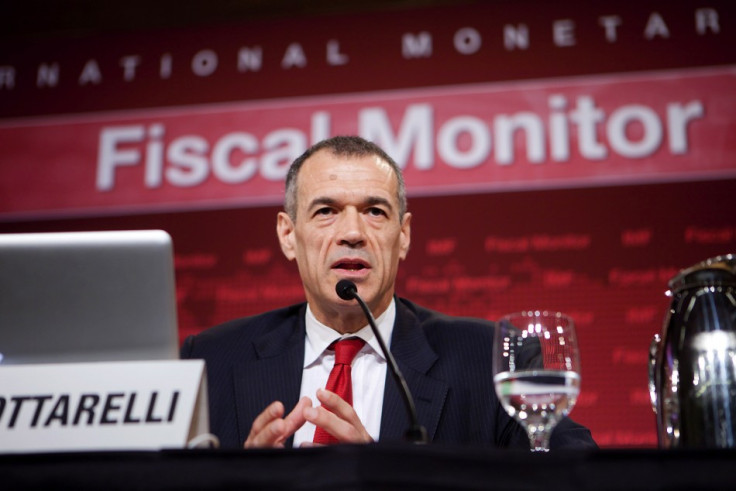IMF Asks EU to Find Financial Transactions Tax Alternative

The International Monetary Fund has asked eurozone countries to devise an alternative rule to the controversial financial transactions tax which many European Union member states have pledged to adopt in 2014.
According to an IMF official, the Washington-based lender believes that the proposed EU FTT could negatively impact transaction volumes, despite being designed to bolster public finances and discourage speculative trading.
Led by Germany and France, 11 EU member states are thrashing out the finer details of the FTT, which would be applied to equities, bonds and derivatives trades. However, financial transaction volumes have declined by 15% in France, where an FTT already exists.
"According to the IMF there are other levies that could be better than the FTT," said Carlo Cottarelli, head of the International Monetary Fund's fiscal affairs division said at conference in Milan, on 15 June.
"A tax on transactions, in general, is not so sensible, it is something old-fashioned", he said, adding that a charge on bank assets would be more efficient and that there is no evidence that the levy reduces the volatility of trading.
"Even if in Italy and France, financial trading taxes have a low tax rate, [but] there is evidence that the volume of transactions fell following the introduction [of this rule]."
Cottarelli also said that France's experience could serve as a model for introducing a levy on high-frequency-trading, which would find greater acceptance from market participants.
Concerns Mount Over FTT
In January this year, EU finance ministers paved the way for 11 eurozone countries to design a FTT, which will effect equities, bonds and derivatives trades.
It is expected that a stock or bond trade will receive a 0.1% tax rate, while a financial derivatives contract will receive a charge of 0.01% for every transaction. This applies if one of the trading parties is located in the EU.
The plan is similar in style to a so-called 'Tobin Tax', named after the economist James Tobin who originally conceived the idea in 1972 to apply to currency trading. Other adoptees to the proposal include Italy, Spain, Austria, Portugal, Belgium, Estonia, Greece, Slovakia and Slovenia.
Since the initial agreement, EU's tax chief, Algirdas Semeta, has hinted that the region may scale down the severity of the proposed levy in a bid to ease market fears that the scheme would backfire.
In April, Britain initiated legal proceedings against the EU FTT. Lawmakers claim that Britain would be forced to pay billions more in borrowing costs as a result of the planned tax, even if it does not sign up to the controversial plan.
According to a London Economics study commissioned by the City of London Corporation, the repercussions of 11 eurozone nations implementing the EU FTT could lead to a £4bn (€4.7bn, $6bn) rise in the cost of issuing UK debt.
The study adds that the cost of firms raising capital will increase by 100 basis points or more in member states that do not subscribe to the tax because of a reliance on debt capital markets.
© Copyright IBTimes 2025. All rights reserved.






















